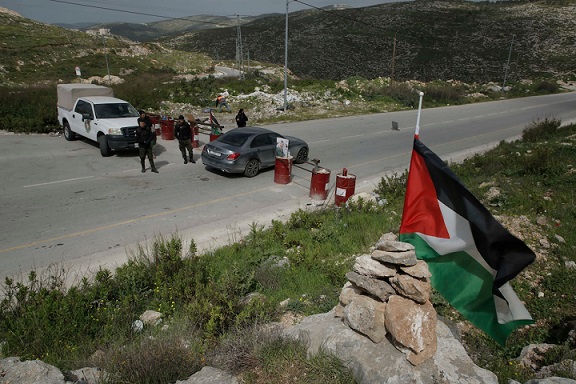
Mondoweiss.net / March 31, 2020
In the past few days we have watched the number of coronavirus cases climb in Palestine; and it has become ever more apparent that this crisis is going to get much worse before it gets better.
There was a hope that the virus could be contained within Bethlehem and other major cities like Ramallah and Nablus, where local authorities are better equipped to deal with an outbreak or enforce a lockdown.
But as we see more and more cases being reported in towns and rural villages, that hope has dwindled and has been replaced with a sense of dread — that more people will continue to get sick, and the government will fail to get it under control.
As of Tuesday, there were 117 confirmed cases of the virus — 10 in the Gaza Strip, and 107 in the West Bank.
The number of West Bank cases nearly doubled over the past week, as hundreds of Palestinian laborers who were working in Israel flooded back into the West Bank.
The majority of the new cases have been reported in a cluster of villages in the central West Bank district, west of Jerusalem city, known as the “Biddu enclave,” and are believed to have originated from sick laborers who were working inside Israel and Israeli settlements.
Despite being in Areas B and C of the West Bank, the cluster of villages are trapped beyond the Israeli separation wall, severely affecting the ability of the PA to contain the virus in the villages.
Watching the virus spread in villages like Biddu, Beit Iskaria, and al-Qubeita have served as a harsh reminder that the negative effects of the occupation have not ceased to exist with the coming of the coronavirus; and in the case of the Biddu enclave, the occupation has only served to exacerbate the crisis.
People are frustrated, angry, and outraged at the videos circulating on social media showing Israeli soldiers dressed in protective health gear raiding Palestinian homes across the West Bank, and spitting on Palestinian cars and homes as they patrol the streets during their raids.
But in the same breath, the people are all too familiar with the even more frustrating reality that the Palestinian Authority is heavily dependent on the Israeli government when it comes to fighting this virus.
Over the past week, health and government officials alerted people to the quickly dwindling number of test kits and swabs in the West Bank, and appealed to the international community to send aid to the occupied territory.
At the end of the day, however, it was the PA’s shadowy intelligence agency that secured the arrival of more testing kits on Monday, just days after Israel’s Mossad brought hundreds of thousands of new testing kits into Israel.
Contributing to the rising frustration is the sobering reality that the majority of the population, both in the private and public sectors, are out of work, and whatever little savings they have left are running out.
The PA announced austerity measures over the weekend amid expectations that government revenues are going to decline by more than 50 percent but maintained promises that public sector workers like healthcare workers, teachers, and security forces would be paid in full for the month of March.
In the meantime, private-sector workers have been promised 50% of their salaries for the months of March and April.
While the announcement of salary payments offers much-needed relief for the community, particularly in places like Bethlehem where people have been out of work for a month now, it feels like a bandaid being slapped on a growing wound.
A huge sector of the population who relies on work in Israeli settlements and inside Israel, as well as people who are not steadily employed by the government or by the private sectors, are being left in limbo, as the government has no budget to compensate them.
But just like the rest of the world, where the government fails, ordinary citizens have stepped in to ease the pain being felt by their community.
Organizations in Bethlehem’s refugee camps, where unemployment rates are higher than in the rest of the city, continue to pool their resources to provide essential food assistance to the community in the absence of aid from the government and UNRWA.
Many local shops are honoring their longtime customers by allowing people to purchase essential items on an open tab, to be paid back whenever they can.
A shoe factory in Hebron has turned itself into the only mask-making factory in all of the West Bank, putting their financial losses aside in an effort to assist the faltering healthcare system.
In Gaza, a major clothing factory has stepped up to produce masks and protective gear for the territory’s health workers. The company, which has suffered under decades of Israeli wars and blockades, has even sent its masks into Israel, where the demand for such items has surged.
When sharing fears and anxieties with Palestinian friends, the following sentiment always comes up, in one form or another: “we’ve survived a lot worse than this before.”
Yumna Patel is the Palestine correspondent for Mondoweiss












